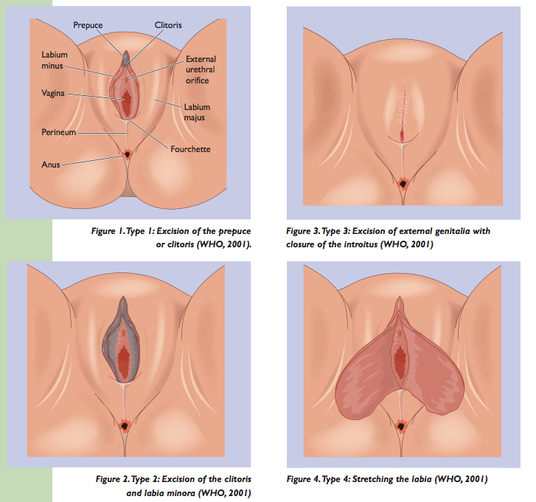What is FGM? |
Female Genital Mutilation is a multifaceted behavior deeply embedded in the social, religious, moral, political, economic, and cultural aspects of communities all over the world. It is not enough for us to solely condemn FGM without understanding the tradition within its context.
Beyond the acute and chronic health consequences associated with the procedure of FGM (including but not limited to hemorrhage, PTSD, infection, tetanus, pelvic inflammatory disease, hematocolpos, painful intercourse, prolonged labor, infertility, and death), there are added social consequences. TWWP sees FGM as subjecting girls and women to being passive members of their society; excluding them from educational opportunities, violating their human rights to health, security, and bodily integrity, all while reflecting deep traditional inequalities between genders. Over 130 million women worldwide have been affected by some form of FGM and it is estimated that over 2 million procedures are continuing to be performed each year. Different forms of FGM include: I. Sunna Clitoridectomy
|


